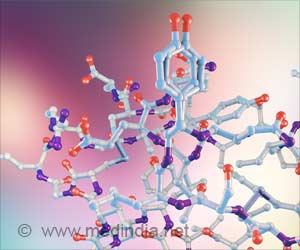A novel anti-clotting drug named bivalirudin is turning out to be a better option than combination drug therapy for patients suffering heightened coronary conditions, for instance heart attacks.
A novel anti-clotting drug named bivalirudin is turning out to be a better option than combination drug therapy for patients suffering heightened coronary conditions, for instance heart attacks.
Lead researcher Dr. Gregg W. Stone, a professor of medicine and director of cardiovascular research and education at Columbia University said, "We use it at Columbia in the vast majority of cases. We find that compared to heparin, it is just as effective and safely allows us to do angioplasty with a major reduction in bleeding episodes."During a study involving 14,000 patients, who had suffered heart attack or other acute coronary syndromes, study participants were administered either a treatment including heparin, or a package including bivalirudin or just bivalirudin.It was found that Bivalrudin reduced the occurrence of artery blockage or severe bleeding by nearly 14 percent compared to the effects of a drug package that included Heparin.
"It makes care of patients in the cath lab much simpler and safer. The big difference was the reduction of major bleeding, almost 50 percent. Major bleeding has been associated with higher mortality, so it is important for the outcome", Dr. Gregg W. Stone said.
Dr. John A. Bittl, an interventional cardiologist at the Munroe Regional Medical Center in Ocala, commented, "This report states that bivalirudin can be used for patents with acute coronary syndrome with a lower risk of bleeding than conventional treatment."
Source-Medindia
SAV






